Herbs and Adaptogens For Your Menstrual Cycle
For many, menstrual issues are a regular occurrence (PMS, irregular periods, painful cramping), this can affect day-to-day life and overall well-being.
Our menstrual cycle is a good indicator of what's going on with our hormones (i).
According to studies and research, there are certain herbs and adaptogens which may help support your menstrual cycle.
In this blog, we'll discuss:
- The four phases of the menstrual cycle
- Herbs and adaptogens that may help support your cycle
So, let's get the low down on menstrual cycles...
Your Menstrual cycle is measured from the first day of your period to the first day of your next period. The average cycle lasts around 28 days (1).
There are two phases of the menstrual cycle, these are called the 'follicular' and 'luteal'. In these two phases, there are additional phases (menstruation & ovulation).
1. Menstruation
The first and most obvious phase of your cycle is menstruation (also known as your period). The lining of the uterus is thick with fluids and nutrients ready to nourish an embryo. If an egg hasn't been fertilized, estrogen and progesterone levels decrease. This then causes the top layers of the uterus lining to shed, resulting in bleeding (start of menstruation) (2).
Mood changes, low energy levels, and cramps may be present during this time of your cycle.
Research has found that these herbs & adaptogens may be helpful for this phase:
(click on the name of the herb/adaptogen to shop).
2. Follicular phase (phase 1)
The follicular phase starts on the first day of menstruation and lasts until the first day of ovulation. This phase is about preparing an egg ready to be released.
The brain signals for the follicle-stimulating hormone (
The dominant egg heightens the body’s oestrogen.
Although you may feel symptoms of PMS during this time, you may also feel more energized, increased focus, and upbeat (4).
Research has found that these herbs & adaptogens may be helpful for this phase:
(click on the name of the herb/adaptogen to shop)
3. Ovulation
Here's the shortest phase of the cycle. Ovulation typically starts around day 14 of your menstrual cycle and is the most important phase if you're trying to get pregnant.
During ovulation, the dominant egg is released and makes its way down the fallopian tube toward the uterus. If the egg becomes fertilized by sperm, it will stick to the walls of the uterus, starting a pregnancy. Ovulation lasts for 12 to 24 hours, however, it's also possible to get pregnant in the days before and after ovulation, a window of around 6 days (5).
During this time you may feel an increased sex drive and a rise in body temperature (6).
Research has found that these herbs & adaptogens may be helpful for this phase:
(click on the name of the herb/adaptogen to shop)
5. Luteal Phase (phase 2)
The luteal phase typically starts around day 15 (right after ovulation), and lasts until day 28 (your next cycle).
In this phase, the body thickens the lining of the uterus, ready for a possible pregnancy. If pregnancy isn't achieved, then reproductive hormone levels begin to drop, which will eventually result in the shedding of the uterus lining, starting the next menstrual cycle (7). During this time, many may experience symptoms of PMS (pre-menstrual symptoms).
Research has found that these herbs & adaptogens may be helpful for this phase:
(click on the name of the herb/adaptogen to shop)
That's the basics covered on the four processes that make up your menstrual cycle!

Herbs & Adaptogens that may help with your menstrual phase
Turmeric
Turmeric (Curcuma Longa) is a traditional Indian herb/spice that has been famous for centuries. Turmeric’s active ingredient is called Curcumin, considered the most beneficial and active ingredient of the herb. Curcumin is renowned for its presumed anti-inflammatory properties alongside other health beliefs.
The pain during PMS is believed to be linked to inflammation (8). As turmeric is believed to have anti-inflammatory properties, it may help relieve symptoms of PMS.

A clinical trial completed in 2015 which focused on psychological, physical, and behavioural changes during PMS found that those supplemented with curcumin (turmeric active ingredient) had a significant decrease in symptoms (9).
Turmeric is best added to soups, as a spice, or in smoothies. Another great way to take turmeric is a hot turmeric latte/tea.
Maca Root
Maca Root has been used traditionally as a natural alternative for centuries. Maca Root has been harvested in Peru for over 3000 years and is found in the Andes Mountains. It is popular to support hormone balance in both males and females.
Maca works by supporting the glands in the brain, the hypothalamus and the pituitary. These two glands determine all of our hormonal responses. Studies have found a positive effect on hormone balancing and reducing PMS symptoms whilst taking Maca (11).
Maca powder can be used in a variety of ways, including smoothies, salads, juices, desserts, and raw cooking recipes. Our favourite is to add Maca to smoothies!
Ashwagandha
Ashwagandha (Withania somnifera) is a staple herb used in Ayurveda, also known as Indian Ginseng or Winter Cherry. It has become a widely popular supplement over recent years for its various health benefits. Ashwagandha is best known for its possible connection to helping with stress.
According to yoppie.com - How does ashwagandha help PMS?
"ashwagandha regulates the level of cortisol (the stress hormone) in the body which helps to regulate moods and decreases the overall state of stress, anxiety, and irritability." (12).

Its believed that ashwagandha may help regulate the cortisol hormone (the stress hormone). Chronic stress leads to a higher level of cortisol which interferes with the progesterone and thyroid hormones. Progesterone and thyroid hormone disruption interferes with the menstrual cycle.
Irritability and anxiety are two common symptoms associated with PMS due to a change in hormones. Regulating cortisol has a beneficial effect on the regulation of other hormones including reproductive hormones which could improve mood, anxiety, and irritability during PMS and the normal rhythm of your monthly cycle (13).
Nettle Root
Nettle Root, otherwise known as Stinging Nettle, has gained popularity recently as it is used in herbal remedies. Typically, Nettle Root is rich in vitamins and minerals such as Vitamin C, Iron & Zinc. Nettle Root also contain antioxidants which can help fight free radicals and play a role in protecting DNA, proteins and lipids from oxidative stress.
Nettle root has become a popular herb for menstrual cycle support, as its high iron content may support blood loss due to heavy periods (14).
Nettle root can be added to smoothies, salads, soups, and other hot foods.

Ginger
Ginger (Zingiber Officinale) is a popular spice that is commonly used in cooking recipes. The rhizome (stem) can be easily added to soups, baked goods, smoothies & made into tea. It is also used as a supplement due to its active ingredient, gingerols.
Gingerols is a bioactive compound that provides anti-inflammatory and antioxidant properties. Because of this, many use ginger during their menstruation as it may relieve cramps & pain (15).

7 studies including over 600 women found that consuming 750–2,000 mg of ginger powder during the first 3–4 days of their period appeared to have a positive affect on reducing period pain (16).
Ginger is a popular spice used in baked goods, cooking & teas. Our favourite way to enjoy ginger is to have it as a warm tea.
_______________________________________________________________
IMPORTANT NOTICE * Content included in this article is provided for information purposes only and is not a substitute for professional advice/medical advice. Please speak to your GP before trying any new remedies.
*If you have any allergies or health conditions please double-check with your GP & research before taking any new herbal/adaptogen remedies*
Make sure to share this blog with anyone who would find this blog interesting or useful.
Resources & studies in this article:
| i. | https://www.mindbodygreen.com/articles/period-color-hormonal-health |
|
1. Periods and fertility in the menstrual cycle
|
https://www.nhs.uk/conditions/periods/fertility-in-the-menstrual-cycle/ |
|
2 The 4 phases of the menstrual cycle and why your cycle could be irregular |
https://www.insider.com/guides/health/reproductive-health/menstrual-cycle |
| 3.
Menstrual cycle |
https://www.betterhealth.vic.gov.au/health/conditionsandtreatments/menstrual-cycle |
|
4. Follicular Phase 101: What symptoms to expect, and how to manage them |
https://yoppie.com/blog/follicular-phase-what-symptoms-to-expect |
|
5. How Long Does Ovulation Last? |
https://www.forbes.com/health/family/how-long-is-ovulation |
|
6. How can I tell when I'm ovulating?
|
https://www.nhs.uk/common-health-questions/womens-health/how-can-i-tell-when-i-am-ovulating/ |
|
7. Your cycle explained |
https://cycles.app/articles/cycle-health/your-cycle-explained |
| 8.
Scientists Might Have Finally Figured Out Why Period Pain Hurts So Damn Much
|
https://www.sciencealert.com/scientists-are-getting-closer-to-figuring-out-why-period-pain-hurts-so-bad-inflammation |
|
9. |
https://pubmed.ncbi.nlm.nih.gov/26051565/ |
| 10.
Hormone-Balancing Effect of Pre-Gelatinized Organic Maca |
https://www.ncbi.nlm.nih.gov/pmc/articles/PMC3614604/ |
| 11.
WHY IS MACA SO GOOD FOR WOMEN?
|
https://littlebirdorganics.co.nz/blogs/little-bird-blog/why-is-maca-so-good-for-women |
| 12 & 13.
How does ashwagandha help PMS? |
https://yoppie.com/blog/how-does-ashwagandha-help-pms |
|
14. Herbs for the cycle - how herbs can support your cycle health |
https://www.breatheilo.com/en/herbs-for-cycle/ |
|
15. The 8 Best Teas for Menstrual Cramps
|
https://www.healthline.com/nutrition/tea-for-cramps |
| 16.
Efficacy of Ginger for Alleviating the Symptoms of Primary Dysmenorrhea |
https://pubmed.ncbi.nlm.nih.gov/26177393/ |

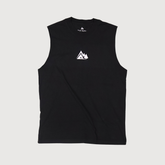



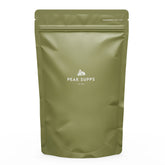

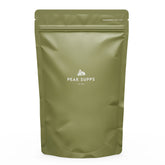

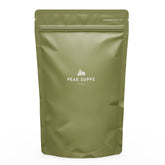

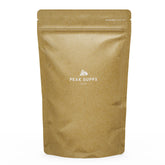

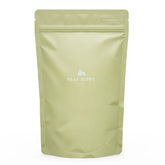


Leave a comment
Please note, comments need to be approved before they are published.